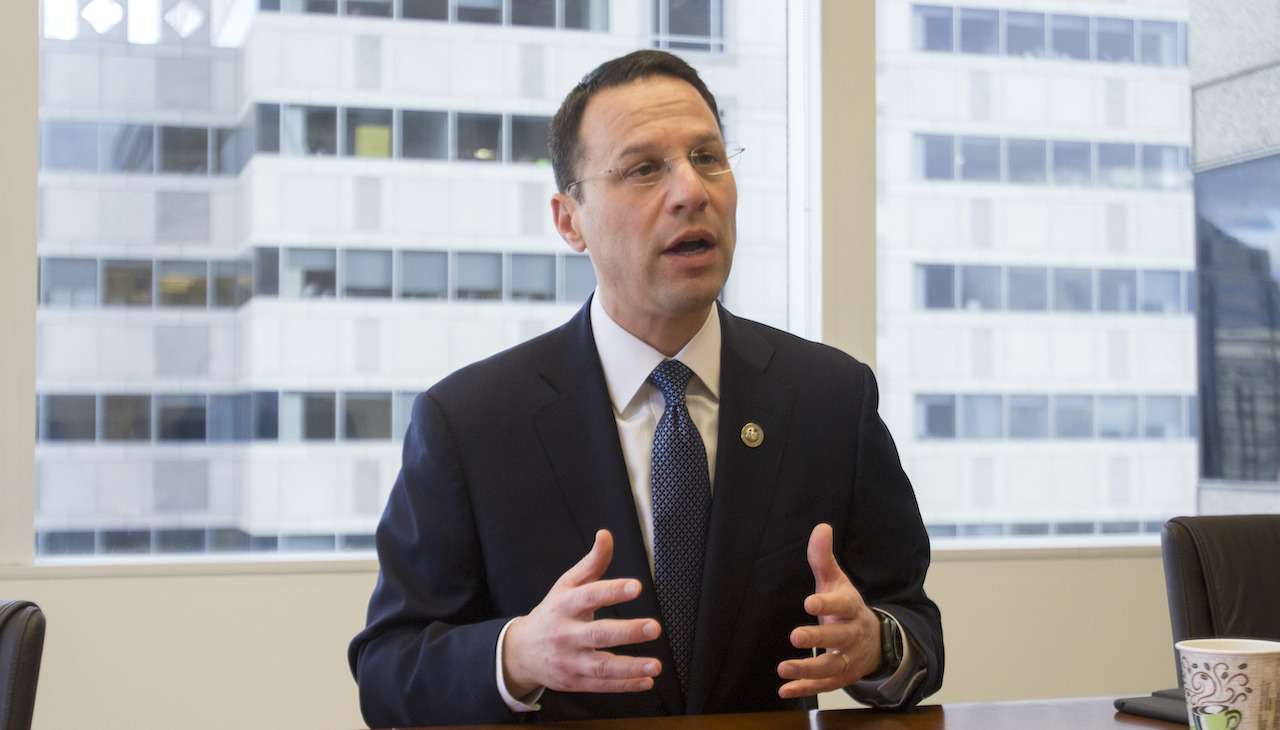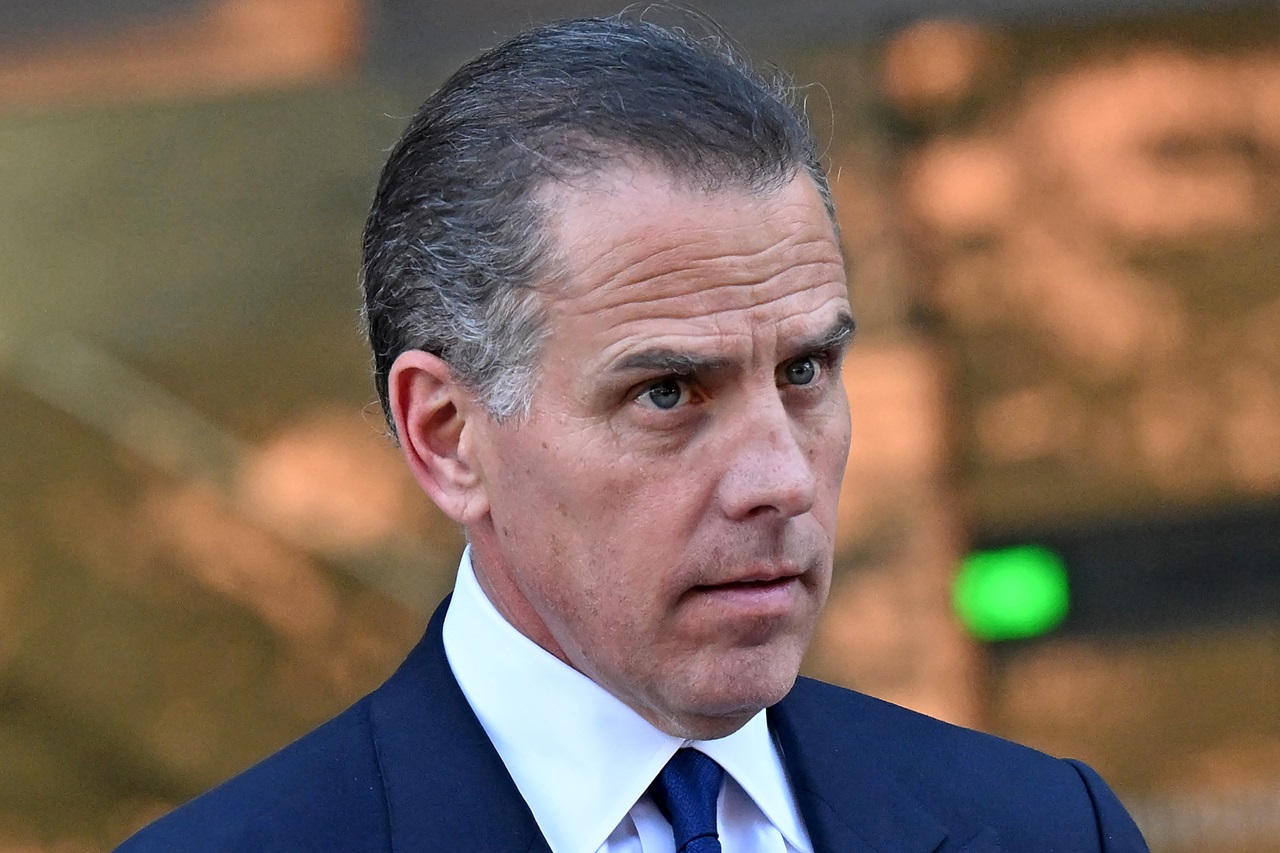
AG Josh Shapiro talks violence, ed, supporting Black and Brown biz, and more in run for Governor
The Democratic candidate for governor talked with AL DÍA last week, and dished on some of the campaign’s most pressing issues.
Pennsylvania Attorney General Josh Shapiro stands alone on the Democratic side of things in the 2022 race for governor of the commonwealth.
Shapiro, who was speculated as the PA Democratic Party’s choice for governor long before his official campaign announcement in October 2021, has seen his political profile grow substantially over the last 17 years.
He started back in 2005 as a member of the PA House of Representatives from Montgomery County’s District 153, and served until 2011, when he was elected as Montgomery County Commissioner. From there, Shapiro went on to win the race in 2016 to be Pennsylvania’s new Attorney General, where he serves to this day.
Despite the lack of immediate competition, Shapiro has still been active in hitting the road across Pennsylvania alongside his selected Lieutenant Governor candidate Austin Davis to spread the word.
On Monday, April 18, Shapiro met virtually with AL DÍA to discuss some of the most pressing issues of the 2022 campaign trail.
{"preview_thumbnail":"/sites/default/files/styles/video_embed_wysiwyg_preview/public/video_thumbnails/CzlitFYjrDc.jpg?itok=W5TB19zj","video_url":"https://www.youtube.com/watch?v=CzlitFYjrDc","settings":{"responsive":1,"width":"854","height":"480","autoplay":1},"settings_summary":["Embedded Video (Responsive, autoplaying)."]}
Fighting gun violence
It started with gun violence, which has hit record levels in Philadelphia and across the nation in the wake of the ongoing COVID-19 pandemic.
Shapiro called the levels of violence “unacceptable,” and presented a three-pronged approach to combating the issue.
The first prong was accountability, and he cited his record as Attorney General in arresting drug dealers and gun traffickers as what he would continue to do if elected governor. More specific to Philly, Shapiro launched an initiative in Kensington in May 2020 to combat the flow of illegal drugs into the community.
“If you pick up a gun, if you use it, if you deal drugs, you need to be held accountable, and you need to be prosecuted to the fullest extent of the law,” he told AL DÍA.
The second prong was hiring more officers at police departments like Philadelphia’s and across the state to bridge more gaps within communities long distrustful of law enforcement.
Not just in Philadelphia and Pennsylvania, but across country, police departments have struggled with morale and recruitment ever since the murder of George Floyd in May 2020 by Derek Chauvin. The tragedy was the fuse that lit a new fire under advocates across the country demanding changes to how police interact with people and communities of color.
But for the whole of law enforcement, the tragedy has had the opposite effect, as officers leave in droves and recruiting pools run dry. In Philadelphia, due to staffing shortages, the police department recently changed its residency requirement for incoming officers. Now, officers have six months after getting hired to move to the city, rather than being required to have lived in the city a year prior to getting hired.
For Shapiro, the effect of not having enough officers is that there aren’t officers out in communities both making residents feel safe, and building valuable connections.
“If we hire more police and fund more police, that's more opportunity for a police officer to get out of her or his patrol car, walk the beat, get to know the kids in the neighborhood, attend the local community meetings, build more trust between law enforcement and the community,” he said.
The third prong to combat the crisis is for the state to do more to fight some of the other underlying issues that contribute to the rise in gun violence.
“We simply do not do enough to address systemic poverty,” said Shapiro.
That systemic aspect affects everything from education and workforce development, to what resources are in place for individuals dealing with mental health issues and addiction to drugs and alcohol.
{"preview_thumbnail":"/sites/default/files/styles/video_embed_wysiwyg_preview/public/video_thumbnails/vd6M3rlQwMg.jpg?itok=q2MxKZ1Q","video_url":"https://www.youtube.com/watch?v=vd6M3rlQwMg","settings":{"responsive":1,"width":"854","height":"480","autoplay":1},"settings_summary":["Embedded Video (Responsive, autoplaying)."]}
More funding and rethinking school
For education, Shapiro believes the state has long not met its constitutional mandate for adequately funding its schools, including the School District of Philadelphia.
Since 2016, Pennsylvania has used its Fair Funding Formula to determine how to divide up state education funding. The formula takes into account things like the amount of students in a district, how many of them live in poverty, the median income of the households it serves, and a district’s ability to generate tax revenue, among other factors. Shapiro believes overall, more money should be made available through the Fair Funding Formula to districts in need.
Second, he said he wants to put a mental health counselor in every school across the Commonwealth to help students work through some of the mental health issues they bring to school.
For gun violence in particular, AL DÍA has found that mental health is a major contributor, as kids fear for their safety leaving their homes, or have no safety at all in or out of the home, and bring the trauma to school with them and as they go about their day.
RELATED CONTENT
Third, Shapiro said the state needs to do away with standardized testing as a way to measure student achievement in school.
“It does not measure how successful a student can be and it doesn't help teachers teach,” he said.
Instead, Shapiro said that more of an emphasis should be put on teaching the arts, science and humanities, along with vocational, technical and computer training.
“So that students can achieve their objectives, their dreams, their goals, not some goal or dream or objective laid out by some bureaucrat in Harrisburg at the Department of Education,” he said.
{"preview_thumbnail":"/sites/default/files/styles/video_embed_wysiwyg_preview/public/video_thumbnails/dEUaN7jzmc4.jpg?itok=Aqy7xieX","video_url":"https://www.youtube.com/watch?v=dEUaN7jzmc4","settings":{"responsive":1,"width":"854","height":"480","autoplay":1},"settings_summary":["Embedded Video (Responsive, autoplaying)."]}
Supporting diverse small business
Beyond school, Shapiro also talked about the need to continue to do things to financially support Pennsylvanians on the long road to COVID-19 recovery, especially as inflation concerns run rampant.
In that vein, Shapiro released a three-part tax and cost-cutting plan that will cut the state’s cell phone tax, expand its rent and property tax rebate program, and implement a gas rebate depending on the amount of cars one owns.
He also put an emphasis on supporting more Black and Brown businesses across the state through its procurement power. Per some of the latest spending figures, only 11% of all state contracts went to diverse small businesses (Black, Brown, Woman or veteran owned).
“Pennsylvania needs to use its purchasing power to promote Black and Brown business owners in Philadelphia and across the Commonwealth to give them the opportunity to begin accumulating some generational wealth, give them the opportunity to be providing goods and services to the Commonwealth, so they can hire more people, so they can strengthen those families in those neighborhoods,” said Shapiro.
Shut Down Berks?
The final issue Shapiro spoke on was the ongoing effort to shut down the Berks County Detention Center, which is being led by the Shut Down Berks Coalition alongside a number of other immigrant-rights orgs.
Most recently in the effort, Berks County Detention Center reopened as a facility to house immigrant women earlier this year. At the beginning of 2021, the facility released all of the families it housed and had initial plans of closing down before Berks County Commissioners struck a deal with ICE.
That deal is also subject of a potential lawsuit because it was done without public input. In June 2021, a judge ruled that the case could go forward against the commissioners and be heard.
Shapiro cited his effort as AG to demand the detention of families ended at the facility and prior fights with the Trump administration to defend immigrants in the state.
However, he also said that as Governor, there wasn’t much he could do other than be an advocate because the deal struck is between the county and the federal government.
“I think what this does is it highlights the need, again, for a federal solution when it comes to immigration,” said Shapiro. “We need comprehensive immigration reform coming out of Washington. It's one of the few required actions of our federal elected officials, and yet they have failed in doing so over multiple administrations.”











LEAVE A COMMENT:
Join the discussion! Leave a comment.